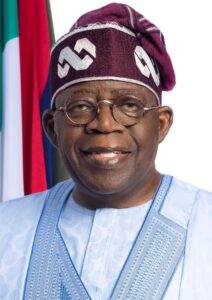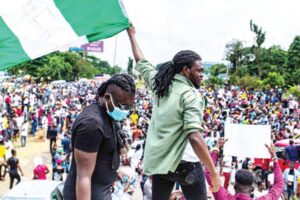
Understanding Governor Oyetola
Kunle Oyatomi
I do not admire politicians; but when they are excellent in their way, one cannot help allowing them their due. – Horace Walpole (1717-1797).
The contemporary political history of Nigeria reveals one universal truth: leadership or headship of a government is beyond winning elections. Victory at the poll is the cherished desire of every politician appealing for votes. But then, there’s life after the ballot, no matter which way it goes. That which manifests after the poll is what is chiefly sought by the electorate. We call it the Integrity Factor. It propels you to deliver on your campaign promises. This has nothing to do with the votes you garnered, in the eyes of the people whose ballot brought you into office. They are more interested in your post-poll performance. What’s your performance level? Where’s the outworking of all your promises? Where’s the manifestation of the sacrifice you said would characterize your life, in once in power?
If the people danced for you and ignored the heat of the sun or the rainstorm to turn out to vote for you, it should be the turn of the newly-elected public office holder to dance and sacrifice for the citizens. That’s what oils the relationship between the people and the government they elect. This is what I mean by life after the ballot being the determining ingredient that spices the polity in a democracy.
As we look at the trajectory of Governor Gboyega Oyetola of the State of Osun, we see clearly the unveiling of these dynamics both in the internal running of his administration and in his dealings with the people he’s governing. The Governor perfectly understands these principles and has applied them adroitly not only to earn accolades from within and without, but also to move Osun to a level of progress that would be talked for years to come.
Oyetola’s exploits in the prudent use of state funds for human and infrastructural development in a country infamous for corruption, embezzlement and flippant waste of public wealth, have entered the record books of impartial observers. Not known to blow his own trumpet, the governor now stands as a spectator on the sidelines, watching as he receives avalanches of applause for his feats in financial transparency. He’s being hailed for judiciously handling the revenue coming his way to improve the lot of those who labored to get him into power. He’s being seen as an Omoluabi who honours his word.
One such indication of the undisputed accountability profile of Governor Oyetola has just been published by the Federal Government and PLS Initiative, an international organisation. In the area of Public Finance/Accountability, they rank the Oyetola government as Number One in the whole of Nigeria. Thus, in this critical component of governance, Osun has been adjudged the best. The ranking tagged Subnational Audit Efficacy Index remarks that Osun achieved the feat through ‘’the transparent nature of governance” under Oyetola.
The report commends the commitment of “Governor Adegboyega Oyetola to financial transparency by signing into law the State of Osun Audit Law 2019,” describing it as “the principal law governing public audit function in the state.”
According to the report, these represent some of “foundational pillars kf achieving public accountability.”
And speaking on the cheering news in the Vanguard newspaper, the Osun State Commissioner for Finance, Mr. Bola Oyebamiji, said he’s not surprised that that has been judged the most financially transparent state in the Federation. He says financial transparency has always been Oyetola’s watchword. Oyebamiji declared: “It is a pact the governor signed with the people of the state to be prudent and transparent with every fund that belongs the state at all times.”
That is the answer to the puzzle that has dazzled pundits who are at their wit’s end when they ponder over the success story of the Oyetola era. But the long and short of it is that Oyetola got it right at the root level, namely the Integrity Level. If you’re able to embrace that virtue, you would have succeeded in outlawing the demons of wanton greed and corruption befalling the public office holders bestriding the commanding heights like the Colossus of Rhodes.
Our leaders and politicians must be taught these nuggets of the sanctity of financial stewardship. These constitute the raw fabric of a healthy society. A people bereft of morality or integrity is heading for doom. You hardly respect or honour a person you can’t trust with your hard-earned resources. History, distant or close, will not have any hall of fame for them either.
Oyatomi Esq is the Director of Publicity, Research and Strategy of the APC in the State of Osun.



